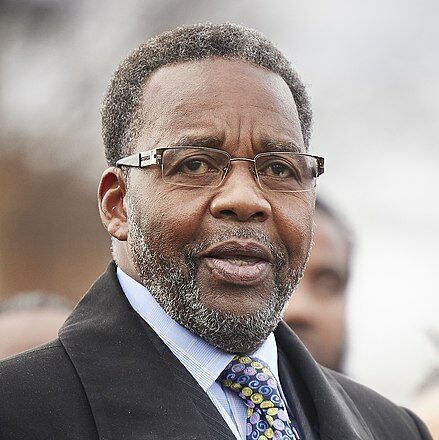Chester’s Incoming Mayor Sees Receiver as Partner, Not Opponent

Chester’s new mayor wants a better relationship with the Pennsylvania government-appointed receiver overseeing the city’s finances.
On the Delaware Valley Journal podcast, Mayor-elect Stefan Roots acknowledged disincorporation is a real threat to the city’s existence, but he sees the state receiver and “getting through bankruptcy” as the solution. Roots sees Receiver Michael Doweary and his team as potential partners for the city to turn its fiscal fortunes around.
“One of the things that is going to help bankruptcy move along is to reduce the amount of challenge that we have brought to the receiver and his team… we’re going to get through this,” said Roots.
That would be a major political reversal in Chester City Hall. Mayor Thaddeus Kirkland has regularly clashed with Doweary, who was appointed in 2020 by then-Gov. Tom Wolf. The pair have gone to court over city salaries, and Kirkland once used a racial slur towards Doweary. Pennsylvania government attorneys accused Kirkland of “intentionally vexatious and obdurate behavior…which has wasted taxpayer dollars and…time that the City of Chester does not have.”
Roots’ strategy is to embrace the financial resources the receiver can bring to Chester while protecting the city’s autonomy.
“There’s been a lot of talk that he’s coming here to change the form of government or run the city, and that’s not the case at all,” Roots said.
“Working with the receiver, in my mind, does not mean falling into line with everything he wants to do. This is our city. This is my city,” Roots said. “We expect to come to terms on most things, but he’s not going to run over me.”
Chester’s fiscal books are full of red ink. The city lost $400,000 meant for the city employee workers’ compensation insurance fund after soon-to-be former Councilman William Morgan fell for a phishing scam. He was later removed from overseeing the city’s finances and voted out of office in this year’s Democratic primary. Other issues involve $127 million in unfunded pension benefits and $232 million owed for retiree healthcare.
Doweary warned the city could be dissolved if it didn’t get its house in order. Doweary’s chief of staff later told DVJournal it needed $5 million to make payroll in January 2024. Chester was put into Chapter 9 bankruptcy earlier this year.
Roots wants an equal partnership between the city and Doweary. “I’m bringing experts to the table as well, with the receiver. His emphasis is on finances…but the city definitely has to have input” on whatever financial changes might happen.
The state Department of Community and Economic Development (DCED)has defended Doweary’s time as Chester receiver, praising him for working with Chester elected officials and taking “many positive steps on the road to financial recovery.” That included hiring a chief of staff to run the government and suggesting that a chief financial officer (CFO) be hired in the future.
The DCED wants Doweary to remain on the job for a few more years. There is still a case before the Pennsylvania Supreme Court on whether Doweary overstepped his bounds.





